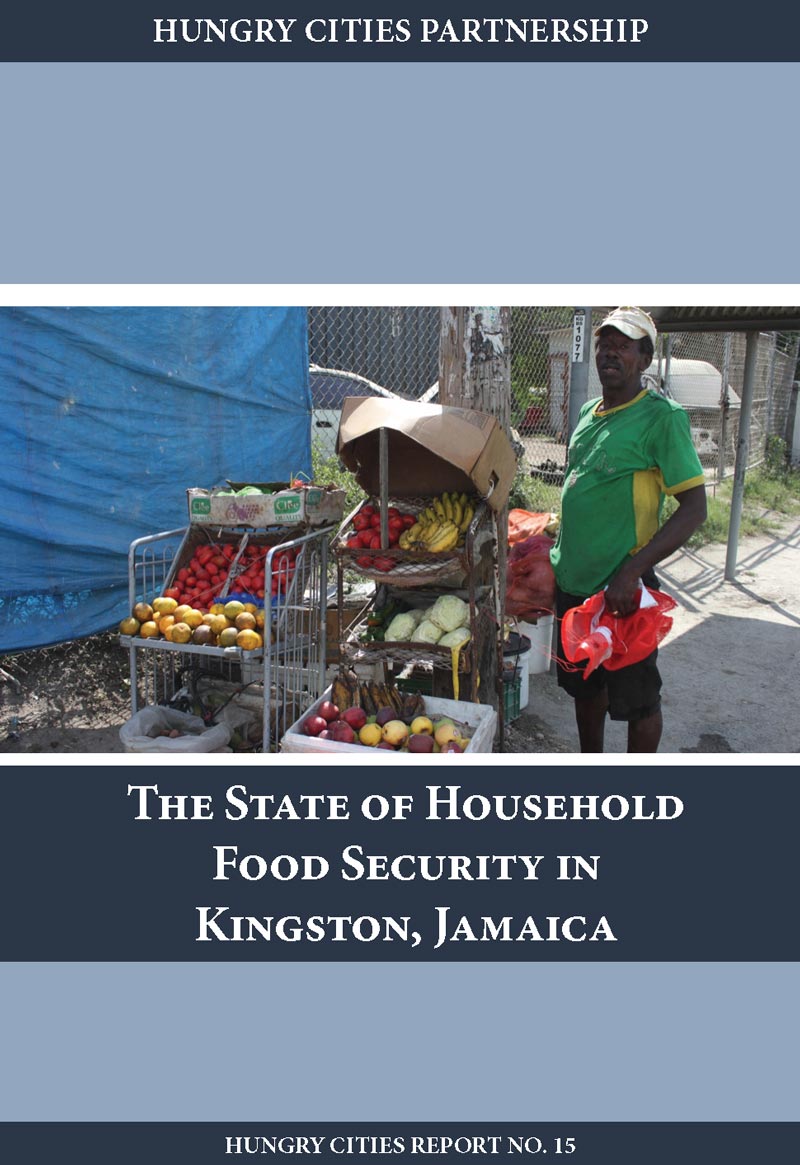This report presents the findings of a household food security survey in Kingston, Jamaica, and bases its analysis on emergent patterns related to various food security measures, spatial and temporal dimensions of food access, perceptions of supermarkets, practices of urban agriculture, and access to social grants. The sampled Kingston households represent a spatially and socially diverse group. Although their experience with poverty varies, these differences align fairly closely with patterns of food security. The city of Kingston appears to have relatively low levels of food insecurity, but such a general observation obscures micro-scale variations that potentially present severe challenges at the neighbourhood level. Households with diminutive incomes, high expenditures, and high dependency ratios are particularly vulnerable to the impact of food access hazards. In the six months prior to the survey, food prices had restricted access to certain types of food at least once per month in two-thirds of the households surveyed. A conceptual frame and rigorous methodological tool that could be used to identify vulnerabilities and specifically target households at greatest risk should be developed. Currently, national grant schemes tend to compensate based on an evaluation of long-term or pervasive conditions and there are limited provisions for circumstances in which households experience sudden shocks that impact incomes and livelihoods.

